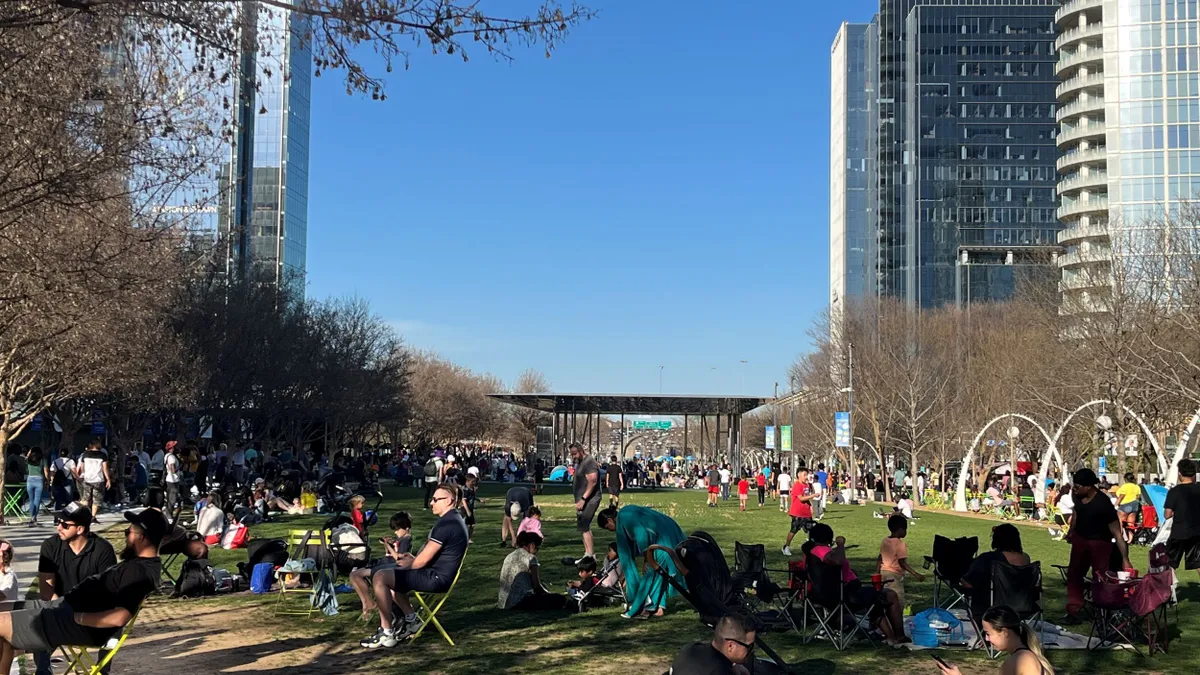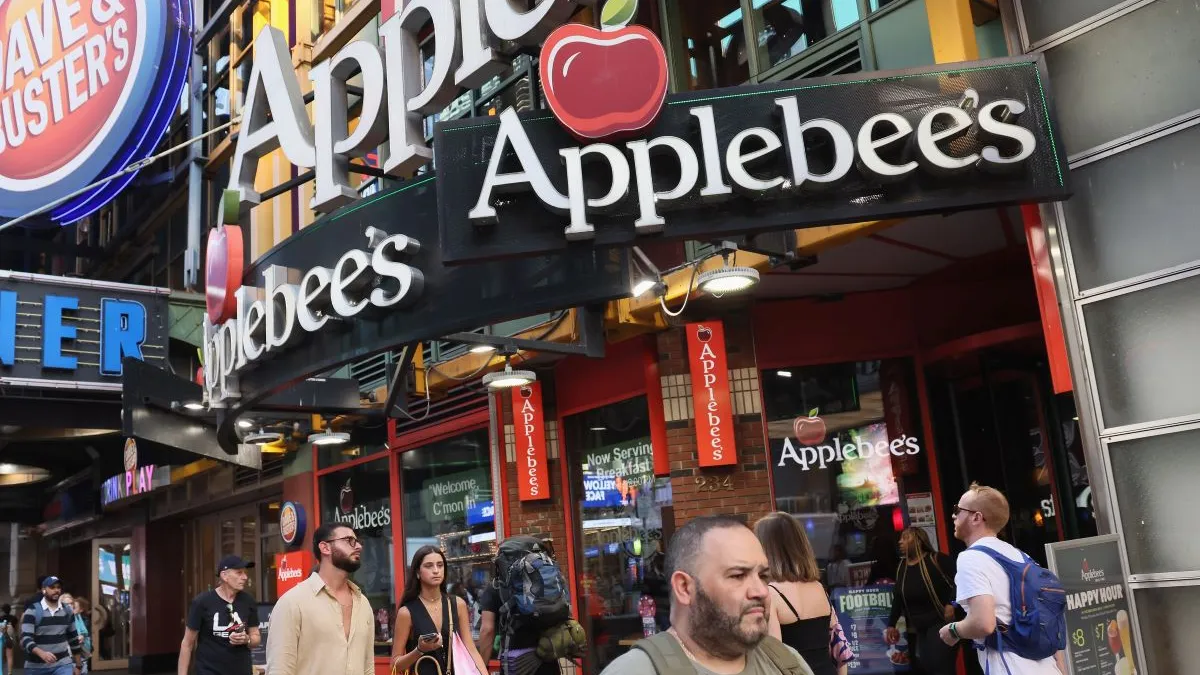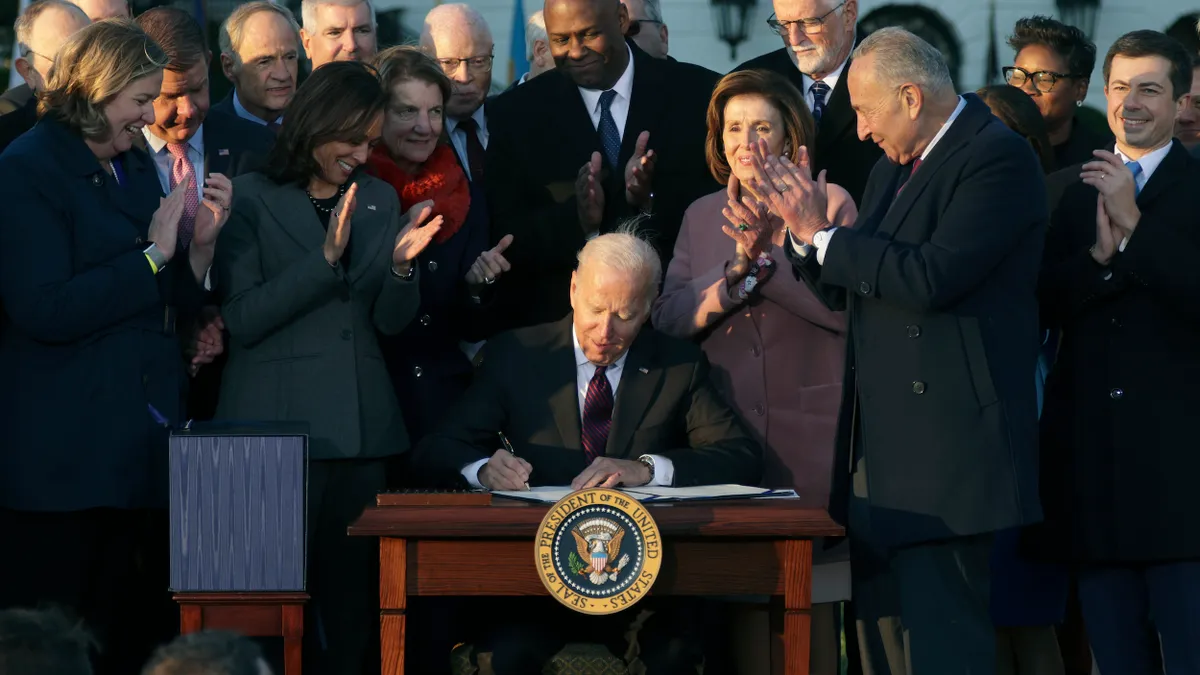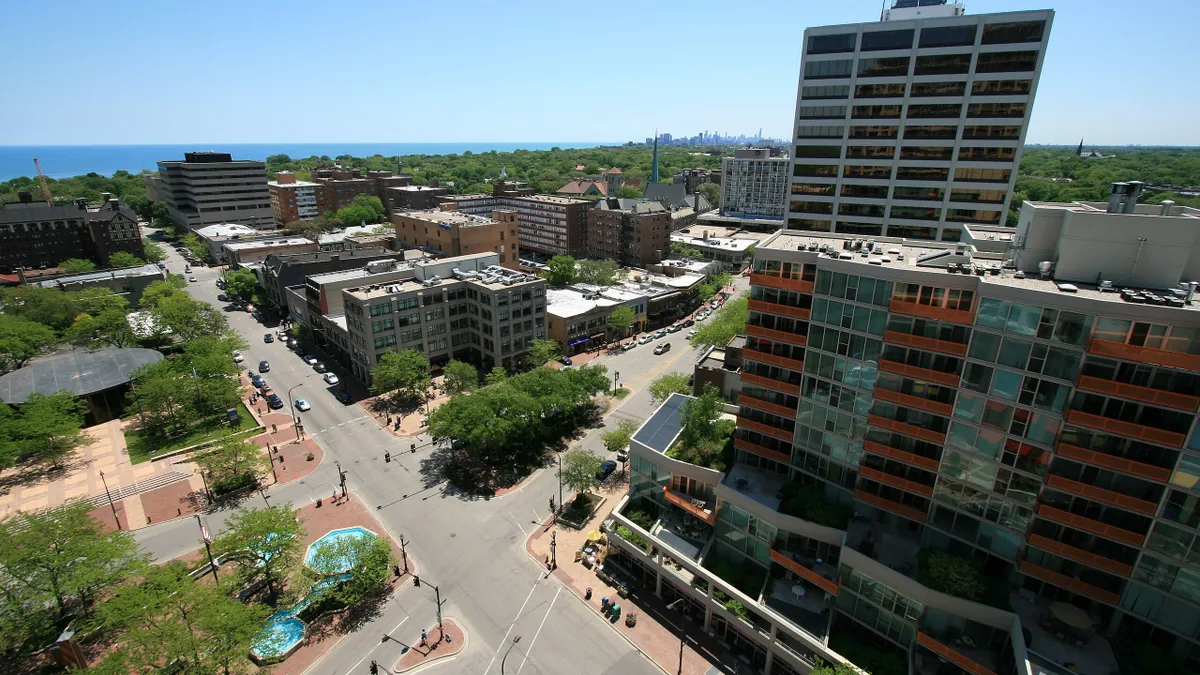Mayors are prioritizing infrastructure spending and rethinking public safety in 2021, according to a report the National League of Cities (NLC) released Thursday.
But in its annual State of the Cities report, which collates survey data and speeches by local leaders from around 600 jurisdictions, NLC found that leaders remain concerned about the financial impact of the coronavirus pandemic, even with federal help coming in.
Unlike previous years' reports, which NLC based almost entirely on analysis of mayoral state-of-the-city addresses, this year's report is based primarily on survey data, with 57 mayoral speeches "assessed to provide context and grounding to our survey results," NLC said.
"In essence, the state of our cities in 2021 is in transition," Christiana McFarland, NLC's research director, said during a webinar to mark the report's release.
Infrastructure needs weigh heavily
Amid the ongoing national debate around infrastructure, including President Joe Biden's proposed American Jobs Plan and the need to reauthorize surface transportation legislation, the report found that mayors are most concerned about the need to invest.
Around one quarter of city leaders said they were forced to defer or scale back infrastructure projects in 2020 due to falling revenues from the pandemic, McFarland said. And of those surveyed, 39% said roads and bridges are the types of infrastructure that have declined the most in their communities.
The pandemic also has forced cities to focus more on improving outdoor space. City leaders said they have made improvements to their parks and other recreation areas in a bid to encourage socially distanced activities. That said, the Menino Survey of Mayors earlier this year indicated that many changes to outdoor areas may not be permanent due to budget constraints.
As mayors try to chart a path forward and recover from the pandemic, they are considering how the American Rescue Plan’s provisions for state and local governments could help.
Bozeman, Montana, Mayor Cyndy Andrus said during the NLC webinar that the city is accelerating its investments in water and sewer infrastructure and broadband internet thanks to the federal government’s rescue package, although there is a lot of work to do.
"I can't think of a single city that doesn't have a long list of infrastructure needs," she said.
The pandemic also highlighted cities' housing challenges. McFarland said mayors have increasingly raised concerns about the lack of affordable housing and an uptick in homelessness, especially in big cities. Housing issues will continue to be front of mind for cities, she said, especially as emergency provisions like the Centers for Disease Control and Prevention’s eviction moratorium expires at month's end.
Budget and management issues rise on leaders' radar
While city leaders are keen to make needed investments, they remain concerned about the financial impact of the pandemic and whether they will need to make major service cuts.
NLC warned early this year that cities face a $90 billion budget shortfall in FY 2021, and those financial difficulties continue to weigh on mayors, even as some cities have managed to stay financially resilient and even run budget surpluses.
While budget and management issues are usually in the middle of the pack when it comes to issues mayors are focused on, this year they are second behind infrastructure.
Many mayors reported declining revenue in their general funds. Property and sales tax revenues stayed more or less consistent while utility and parking fees as well as income taxes dropped. McFarland said the drop in fee revenue is significant, as fees are increasingly important to help city leaders balance the books and emergency help for local businesses and residents placed further strains on local coffers.
Sales tax revenue rebounded significantly in the second half of 2020. More than 70% of elected officials reported a drop in sales tax revenue early in the pandemic, but the distribution of federal stimulus checks helped stem that decline to the point where most said they saw no net change in sales tax revenues or even saw a slight uptick. Of those surveyed, 58% saw no change in residential property tax collections and 64% reported the same for commercial property tax collections over the past year.
The American Rescue Plan included $350 billion in direct funding for state and local governments, and some have started planning how they will use it under the guidelines the U.S. Treasury Department issued last month. That package's provisions for state and local governments are "essential to continuing to deliver relief to communities that suffered during the pandemic," NLC CEO and Executive Director Clarence Anthony said during the webinar.
Public safety remains in spotlight
The last year brought a reckoning in many cities over social and racial justice, which has pushed some mayors to make significant reforms to policing.
Rather than heed the calls to "defund the police," which some local officials have criticized, cities largely put an emphasis on strategies like de-escalation, training in areas like implicit bias and the use of body-worn cameras to help improve law enforcement's accountability, the report shows.
It cites examples like Chicago, which created a use-of-force dashboard, and Indianapolis, which created a new facility for use-of-force and de-escalation training. And the report says those techniques are working, noting that officers in the Newark, New Jersey's police department did not fire a single weapon last year after it focused on de-escalation.
According to those surveyed, crime rates seem to be holding steady. The report says 60% of mayors have seen either a decrease in crime rates or seen them stay the same, although it notes an uptick in violent crime, most notably in an increase in homicides.
But with generations of structural inequities to overcome throughout city life, NLC said there is more to be done, especially to rebuild trust between police departments and the communities they serve. An equitable pandemic recovery could be a good first step, McFarland said.
"We know that long-standing disinvestment in communities made worse by the pandemic have compounded issues related to public safety and crime, particularly for urban areas," she said.



















